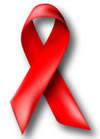
|
Addiction and survival with HIV
26 August 2014 - In Canada and other high-income countries and regions such as Australia,
the U.S. and Western Europe, the widespread availability of potent combination anti-HIV therapy (commonly
called ART or HAART) since 1996 has resulted in a large decrease in deaths from AIDS-related infections.
The power of ART is so profound that researchers increasingly expect that a young adult who is infected
today and who begins ART shortly thereafter will likely live into his or her 80s.
However, this optimistic forecast can only occur if patients are able to take ART every day, exactly as
directed, and if there are no serious co-existing health conditions such as untreated addiction,
unmanaged mental and emotional health issues and uncontrolled infections with liver-injuring
germs such as hepatitis B or C viruses.
As AIDS-related infections have declined among ART users, researchers are finding that health problems
unrelated to HIV are becoming more of an issue. For instance, problems affecting the heart and
circulatory system, the lungs, the liver and the kidneys are of rising interest in the current era.
A Swiss study
Researchers in Switzerland recently investigated the impact of the use of street drugs on the health and
well-being of HIV-positive people. They found that people who engaged in drug use-whether or not drugs
were injected or taken by other means-had reduced survival compared to HIV-positive people who did not
use drugs. This impact on survival occurred because researchers found that addiction and its
consequences likely had multiple effects on the lives of some HIV-positive people, causing
interruptions in therapy, disengagement in care and other unfortunate outcomes.
Understanding addiction
In an editorial in the journal Nature earlier this year, researchers summarized the biological issues
associated with drug use and addiction in the following way:
"[Magnetic resonance images] of the brains [of drug users] show alterations in regions crucial to
learning and memory, judgment and decision-making, and behavioural control. Drugs imitate natural
[chemical signals], resulting in false or abnormal messages being sent [within the brain]. The
brain's central reward system is overstimulated and flooded with the [chemical signal]
dopamine. The brain adapts to this flood by turning down its ability to respond to
dopamine so [drug users] take more and more of the drug to [inadvertently] push dopamine levels higher."
The editorial added: "And the triggering of subconscious memory systems leads to conditioning, so
environmental cues such as particular people or places set off uncontrollable cravings."
The loss of insight
Indeed, drugs can change the brain and force people to reprioritize their goals so that addiction can
eventually take priority over food and other needs. Emerging research with people addicted to cocaine
suggests that this drug can impair the part of the brain that helps people have insight and
self-awareness about their condition. This finding is important because this loss of
insight is largely attributed to psychological issues such as denial or wanting to
minimize self-awareness of addiction or a loss of willpower.
Hopefully, in the future, more people will become aware of the link between addiction and the biological
rationale for the loss of insight that can occur and will therefore be more understanding about addiction
issues.
Healing addiction
People who use street drugs need help and encouragement to begin the process of recognizing, breaking
free and staying free from addiction. For long-term recovery from addiction, it is particularly important that the mental health and emotional issues that can underpin substance use be addressed. This means that people struggling with recovery from addiction should be able to receive a range of services as needed, including advice, referrals and counselling from social workers, psychologists, psychiatrists and family doctors. Such a broad range of services-including screening for hepatitis C virus infection, referrals for assistance with housing and learning to cope with everyday tasks necessary for living-is necessary because entrenched addiction can have an equally broad impact on a person's life and ability to function. Unless the underpinnings of addiction can be addressed, the tremendous life-prolonging potential of ART will not be seen in all populations hit hard by HIV.
The next CATIE News bulletin will focus on the Swiss study mentioned earlier in this report.
-Sean R. Hosein
REFERENCES:
- May MT, Gompels M, Delpech V, et al. Impact on life expectancy of HIV-1 positive individuals of CD4+ cell count and viral load response to antiretroviral therapy. AIDS . 2014 May 15;28(8):1193-202.
- Weber R, Huber M, Battegay M, et al. Influence of noninjecting and injecting drug use on mortality, retention in the cohort, and antiretroviral therapy, in participants in the Swiss HIV Cohort Study. HIV Medicine . 2014; in press .
- Smith CJ, Ryom L, Weber R, et al. Trends in underlying causes of death in people with HIV from 1999 to 2011 (D:A:D): a multicohort collaboration. Lancet . 2014 Jul 19;384(9939):241-8.
- Anonymous. Animal Farm. Nature . 2014 Feb 6;506(7486):5.
- Moeller SJ, Konova AB, Parvaz MA, et al. Functional, structural, and emotional correlates of impaired insight in cocaine addiction. JAMA Psychiatry . 2014 Jan;71(1):61-70.
- Milloy MJ, Marshall BD, Kerr T, et al. Social and structural factors associated with HIV disease progression among illicit drug users: a systematic review. AIDS . 2012 Jun 1;26(9):1049-63.
- El-Guebaly N. The meanings of recovery from addiction: evolution and promises. Journal of Addiction Medicine . 2012 Mar;6(1):1-9.
- Gradin VB, Baldacchino A, Balfour D, et al. Abnormal brain activity during a reward and loss task in opiate-dependent patients receiving methadone maintenance therapy. Neuropsychopharmacology . 2014 Mar;39(4):885-94.
- Veldhuizen S, Callaghan RC. Cause-specific mortality among people previously hospitalized with opioid-related conditions: a retrospective cohort study. Annals of Epidemiology . 2014 Aug;24(8):620-4.
From Canadian AIDS Treatment Information Exchange (CATIE). For more information visit CATIE's Information Network at http://www.catie.ca
Source: CATIE: CANADIAN AIDS TREATMENT INFORMATION EXCHANGE
|